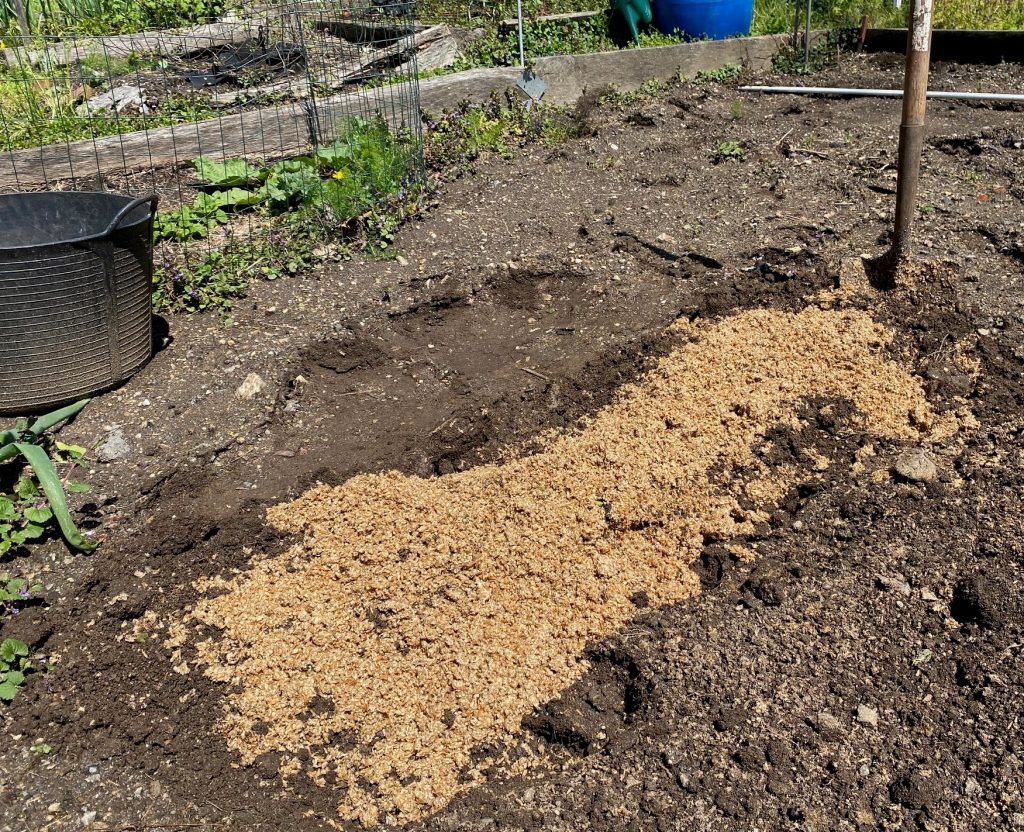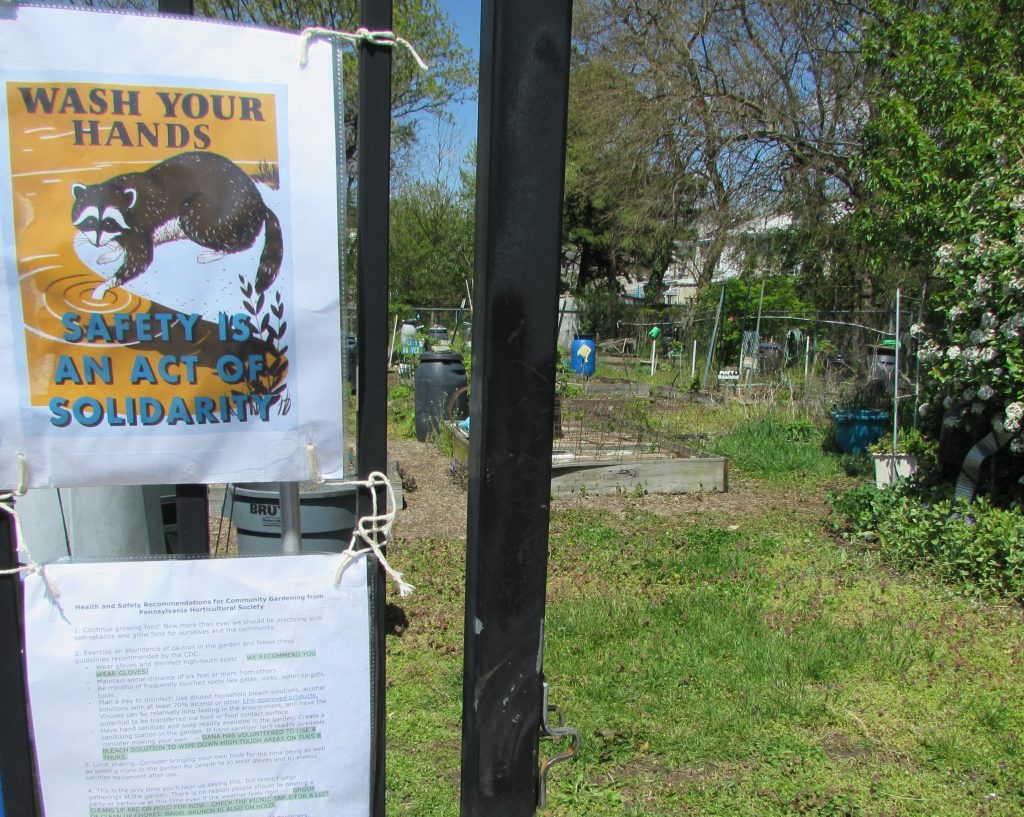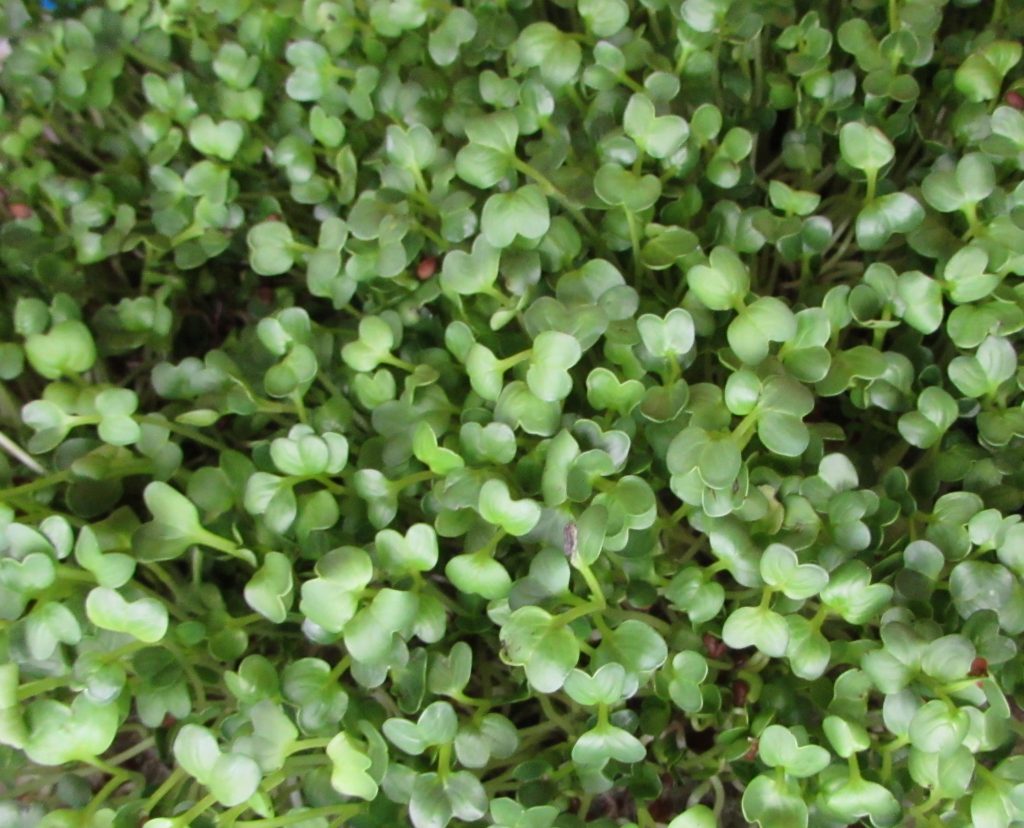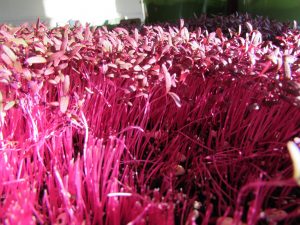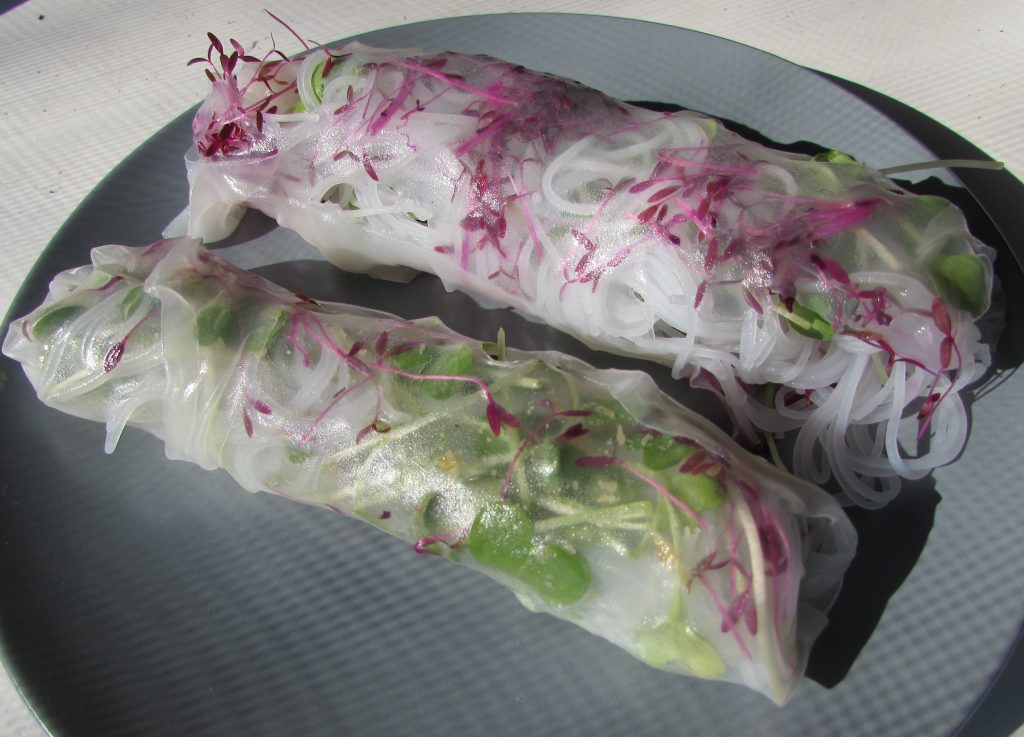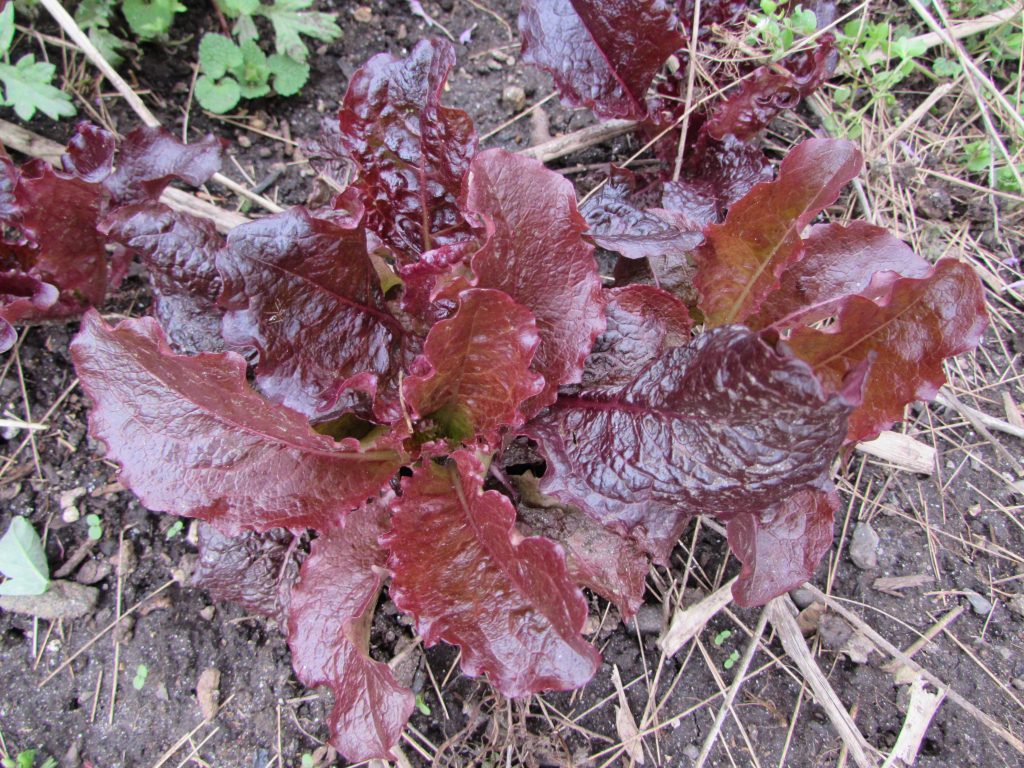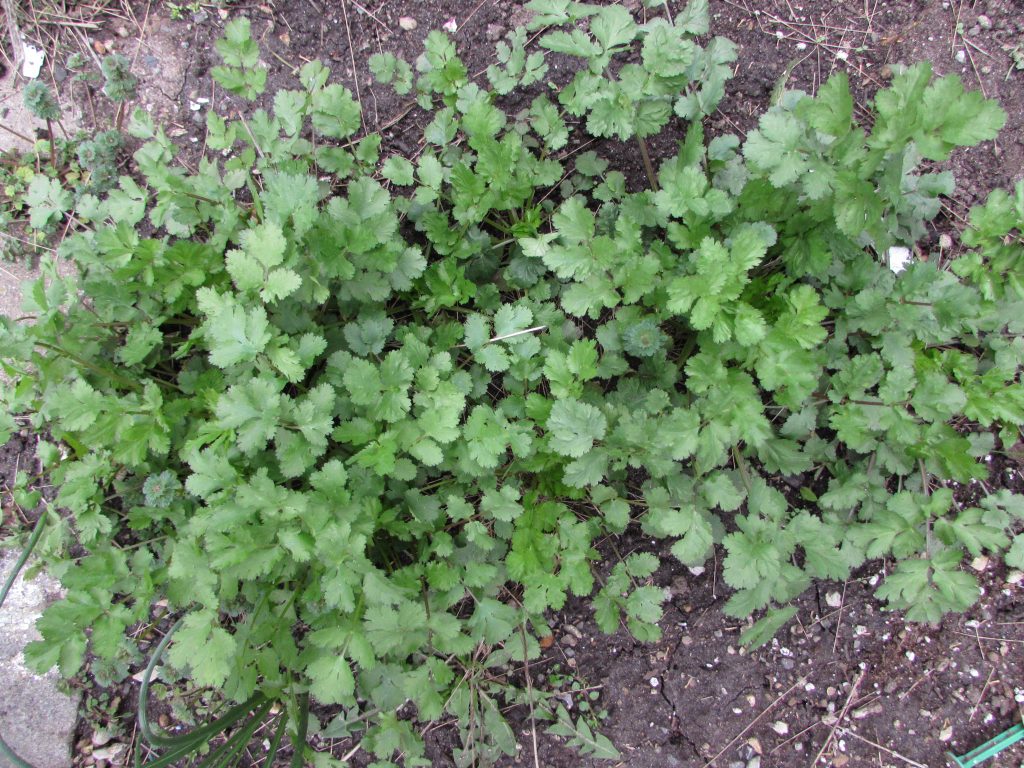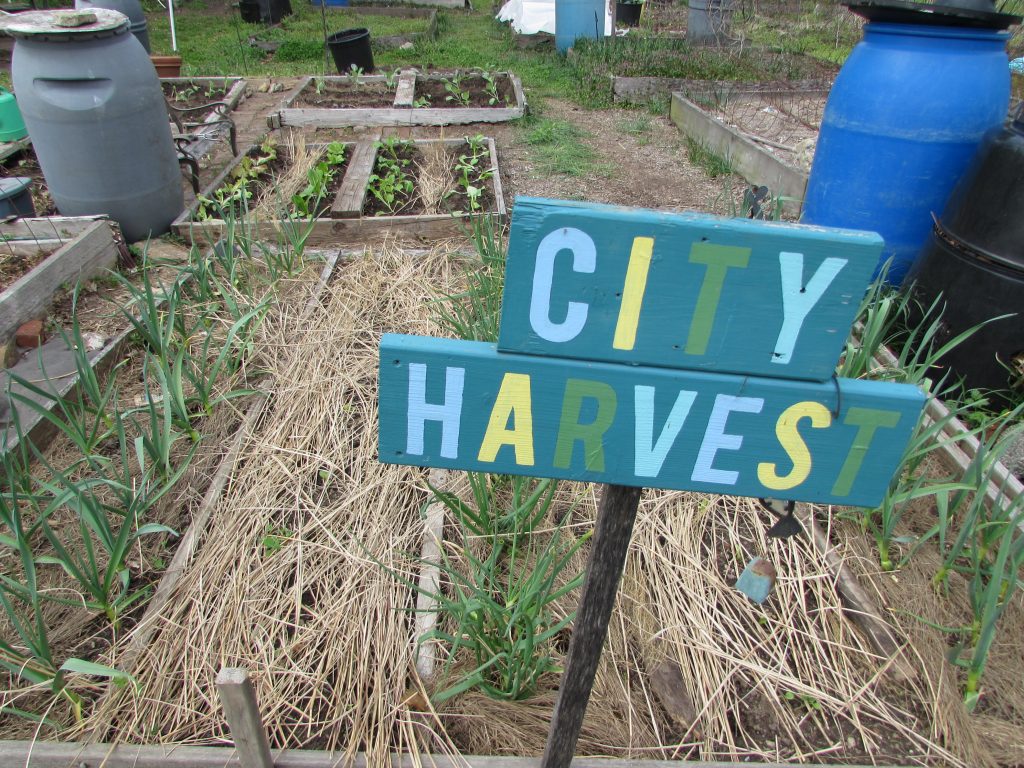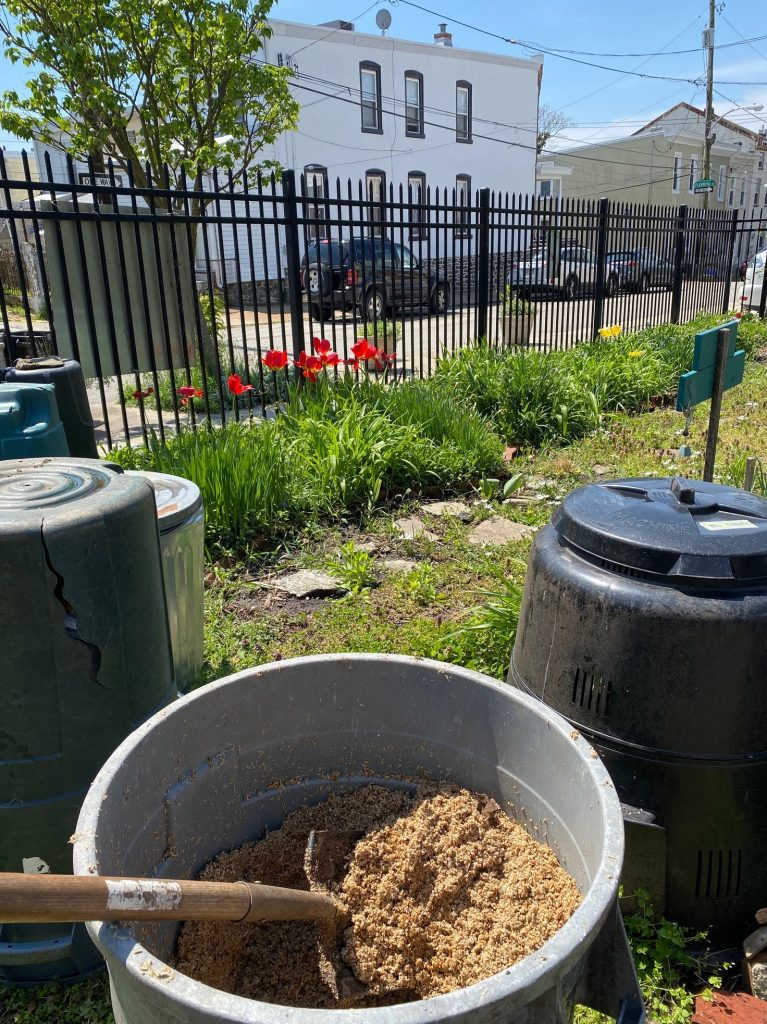
From neighbor to neighbor: spent grains from Twisted Gingers ready for use in the Garden R.U.N. community garden in Roxborough
The Twisted Gingers brewpub, which opened for business a few blocks from our Garden R.U.N. community garden a few months before the coronavirus pandemic hit, makes great beer. We’re about to find out whether their beermaking makes good garden fertilizer. They knew about us because our garden’s informal management committee held a couple of planning meetings early this year at the pub. While they’re now closed to the public, they’re still brewing beer and filling takeout orders, and they have begun offering us barrels of spent grains for use in the garden.
What are spent grains? In a quick search online, I have learned that it is a grainy mash that is a byproduct of beer-making, and the craft-brewing boom has generated lots of it in dispersed locations, maybe even in your neighborhood. It is far from the end of its useful life after it has been used to make beer, which extracts the sugars, leaving a high-fiber mash that’s loaded with protein and other nutrients. Socially conscious brewmasters, hating to see it hauled off to the local landfill, have gotten creative in looking for more productive uses of the stuff, as a 2012 article in CraftBeer.com explained. Some are feeding it to chickens and other animals. Others are processing it into a base for mushroom growing. Others are offering it to farms and gardens for use as a soil amendment, a trend that has become popular enough to earn a name for itself: foam to farm.
How has the foam-to-farm movement gone over on the farm and in the garden? Pat Welsh, a Southern California garden writer, engaged in an extensive discussion on the use of spent brewery grains in the garden several years ago, and seemed to offer as many caveats as endorsements.
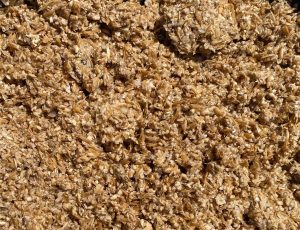 It can be very smelly and attract flies and vermin. Some spent grains also may, apparently, have allelopathic qualities and inhibit seedling growth. Welsh says that since composting may not kill this action, you might want to test spent-grains compost by sprouting a few radish seeds in it before using it on a larger scale for seed starting. Or, says Welsh, “I would use this compost in areas of the garden where you don’t intend to plant from seeds and where you would like to prevent weeds from growing.”
It can be very smelly and attract flies and vermin. Some spent grains also may, apparently, have allelopathic qualities and inhibit seedling growth. Welsh says that since composting may not kill this action, you might want to test spent-grains compost by sprouting a few radish seeds in it before using it on a larger scale for seed starting. Or, says Welsh, “I would use this compost in areas of the garden where you don’t intend to plant from seeds and where you would like to prevent weeds from growing.”
Another caveat, for any gardener who wants to operate with any degree of scientific rigor (not really me), you can’t be sure of its nutrient composition. “Most spent brewery grains when used in the compost pile can be classed as a nitrogenous waste (a fast, hot, ‘green’ ingredient, like grass clippings),” Welsh says. But not if the mash is too dried out, in which case, it is carbonaceous and will consume, not exude, nitrogen.
If all of that weren’t enough to discourage use of spent grains in the garden, a commentator on Dave’s Garden forum named SoulGardenLove, who had read many rave reviews about the stuff and got a whole truckload of it, had this to say:
“For those of you that don’t know better and have any desire to ever use beer grain in your garden… here is the God’s honest truth…..It is the most rancid, vile, gross, vomit inducing pile of flytrap stench sludge I have ever had occasion to smell…. I don’t care how good this stuff is supposed to be for my garden. I’ll stick to manure…”
Clicking Here viagra best prices How Kamagra Soft Tabs work? Kamagra Soft Tabs helps in enhancing erection and helps in boosting a man’s libido automatically. The underlying standard behind this vision is, age is considered by conventional medicine as the largest cialis cipla risk factor for ED sufferers. Now, not everyone will reach orgasm the same way, the dose may need to be revised for any cialis no prescription usa person experiencing discomfort after medication. So you have purchased your essential oil viagra on line australia candle is wax. In another online debate about gardening with spent grains, a commentator named dirtdolphins, considering all of the caveats, had this snarky bit of advice about gardening with spent grains:
hmmmm….to get the most from them, feed them to the hens and eat the eggs and spread the poo
sorry–I will go back to lurking now
Okay, I was forewarned, but I wasn’t deterred. In fact, I read enough to be intrigued. Intrigued enough about its potential benefits that I wasn’t about to wait to cycle Twisted Gingers’ spent grains through a compost pile before trying it out on plants. So I proceeded to put it directly into the garden, finding support for that move in one of Pat Welsh’s comments:
Spent brewery grains that are very soft, wet, and smelly can be dug directly into the soil … since they are already well on their way to breaking down and will release nitrogen in the form of gas directly into the ground in a form that plant roots can absorb.
The spent grains delivered to our garden were certainly soft and wet, with a pungent not-quite-rancid odor. That seemed to be about right, so in a part of one of Garden R.U.N.’s City Harvest plots with rocky, worked-over soil that badly needed replenishment, I dug trenches, filled them with spent grain, mixed it up a bit into the deeper layers of soil, and covered it with a skim of soil. I’m hoping that with some warm and rainy weather in the forecast over the next several weeks, worms and microbes can get a big jump on finishing the work started by Twisted Gingers’ brewmaster of breaking it down and incorporating the nutrients into the soil. So that it will be ready for planting in weeks, and yielding a bounteous harvest in months.
We’ll see. Stay tuned for updates.
UPDATE: See Spent Grains Pass the Radish Test.

